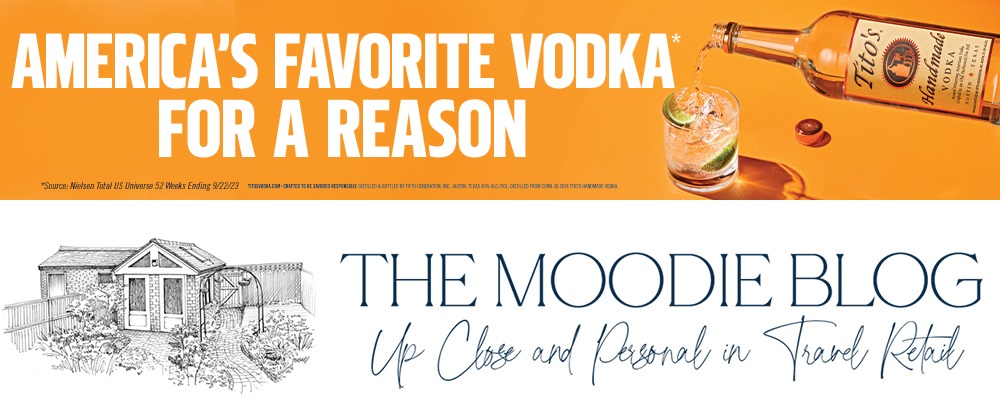Latest posts by Rebecca Mann (see all)
- Tequila’s new Mexican wave crests in travel retail - April 22, 2015
- Toni & Guy: A cut above at London Fashion Week - March 2, 2015
- All fired up for the real Dragons’ Den - November 21, 2014
It’s official: inadequate sleep makes you look older. So far, so obvious, perhaps. But we’re not just talking about a temporary cosmetic effect that can be remedied with a couple of early nights. A recent clinical trial commissioned by Estée Lauder to coincide with the launch of its new Advanced Night Repair Synchronized Recovery Complex II, proves that poor sleep quality can accelerate signs of skin ageing and weaken the skin’s ability to repair itself. In other words, your skin doesn’t just look older – it actually ages prematurely.

It’s not called beauty sleep for nothing…
This is not good news. My personal sleep debt makes the national version look like small change. Whoever coined the phrase ‘sleeping like a baby’ clearly never had offspring like mine. I seem to spend half my life tossing and turning on a plane. And when I am earthbound the Sandman doesn’t stand a chance against distractions such as gin, online shoe shopping and Candy Crush. Occasionally I have a deadline or three as well…
All of which explains why I am starting to look my age. And then some. My skin is suffering from my vampiric lifestyle, and if I am to redress the situation, I need to hit the sack pronto. Because the results of the clinical trial, carried out by physician-scientists at University Hospitals (UH) Case Medical Center, make for sobering reading.
The study demonstrated that poor sleepers had increased signs of skin ageing and slower recovery from a variety of environmental stressors, such as disruption of the skin barrier or ultraviolet radiation. Poor sleepers also had a worse assessment of their own skin and facial appearance.
“Sleep-deprived women show signs of premature skin ageing and a decrease in their skin’s ability to recover after sun exposure,” confirmed Dr Baron, Director of the Skin Study Center at UH Case Medical Center and Associate Professor of Dermatology at Case Western Reserve University School of Medicine. “Insufficient sleep has become a worldwide epidemic. While chronic sleep deprivation has been linked to medical problems such as obesity, diabetes, cancer and immune deficiency, its effects on skin function have previously been unknown.”
In other words, this is not merely a vanity issue. Burning the candle at both ends doesn’t just make you look rubbish, it can have serious health repercussions too. Skin functions as an important barrier which protects against external stressors such as environmental toxins and sun-induced DNA damage. Good sleep quality is also vital to the growth and renewal of the body’s immune and physiological systems.
Most of us know, of course, that we function better – on every level – if we get a good night’s sleep. So why do so many of us (especially in travel retail!) make a fetish, almost, of not getting enough? Be honest now, how many hours do YOU average in Cannes?
In an article published in the Daily Telegraph earlier this year, Huffington Post Founder Arianna Huffington lamented most eloquently the modern trend for celebrating insomnia and sleep deprivation one-upmanship. “Creativity, ingenuity, confidence, leadership, decision-making; all of these can be enhanced simply by sleeping more,” she wrote. I know it sounds shallow in comparison with that lot, but getting more quality sleep, it seems, will also help you look younger, for longer.
Don’t underestimate that as a motivation; or indeed its potential as a lucrative new revenue stream – Estée Lauder certainly isn’t. “This research shows for the first time that poor sleep quality can accelerate signs of skin ageing and weaken the skin’s ability to repair itself at night,” noted the group’s Senior Vice President, Basic Science Research, R&D Dr Daniel Yarosh. “These connections between sleep and skin ageing, now supported with solid scientific data, will have a profound effect on how we study skin and its functions. We see these findings as yet another way we can direct our scientific research toward the real needs of our customers who want to look and feel their best.”
So forget hope in a jar. The next big thing is sleep in a bottle. Until then, I’m off to have a siesta.

Thanks Martin, could have done with this advice years ago a bit late now, I think! Oh well now boarding flight for Hong Kong and sleep,wonder if it will make a difference on the lines? Will let you know
Gerry